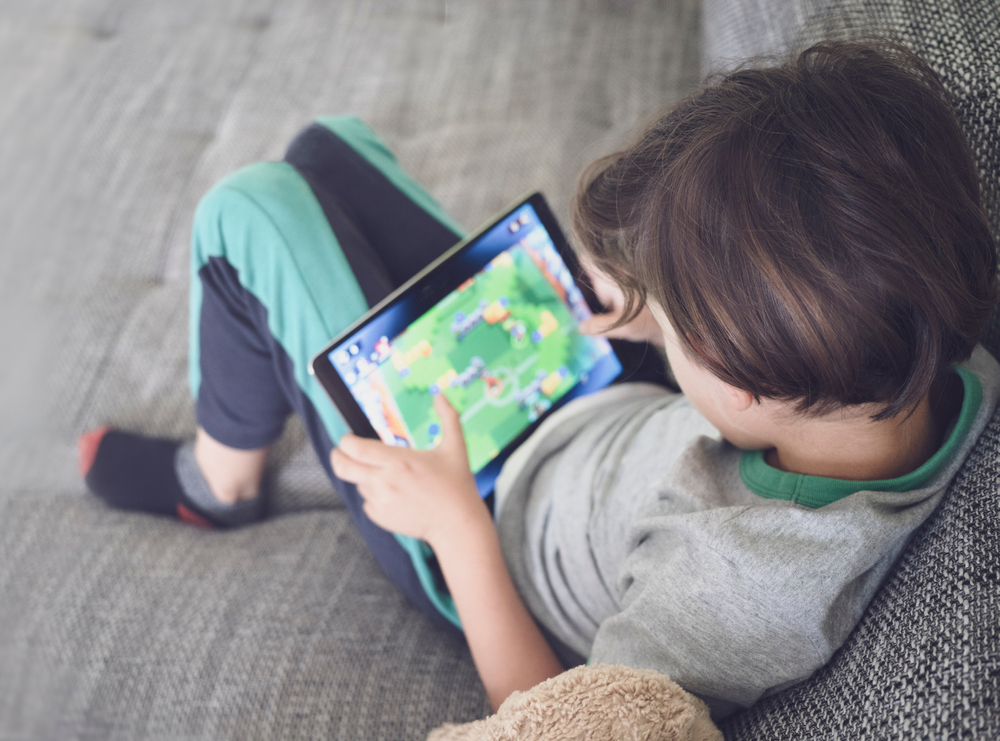
Children's eyesight is a critical part of their overall health and development, playing a crucial role in their cognitive, social, and physical growth. Maintaining optimal eye health from an early age is paramount to ensuring your child has the best possible start in life. Unfortunately, in today's digital age, an increasing number of children are spending a significant amount of their day in front of screens. This excessive screen time can have a significant impact on their eyesight and eye health.
The Impact of Excessive Screen Time on Children's Eyesight
With the rise of digital platforms for learning and entertainment, children are being exposed to screens at an ever-younger age. This prolonged exposure can lead to various eye health issues.
One of the primary concerns is digital eye strain, also known as computer vision syndrome. This condition is characterized by symptoms such as dry eyes, blurred vision, and eye fatigue. It occurs because our eyes have to work harder to focus on digital screens, causing strain and discomfort. For children, whose eyes are still developing, this could potentially lead to long-term vision problems.
Another concern is the impact of blue light emitted by digital screens. While not all blue light is harmful, the high-energy visible (HEV) blue light emitted by screens can penetrate deep into the eye and potentially damage the retina.
Signs of Deteriorating Eyesight
Recognizing the signs of deteriorating eyesight in children due to excessive screen time is crucial for early intervention and treatment. Here are some common signs to look out for:
1. Frequent eye rubbing: This could indicate that your child's eyes are tired or strained from too much screen time.
2. Squinting or tilting the head to see better: These could be signs of vision problems such as myopia (short-sightedness), hyperopia (long-sightedness), or astigmatism.
3. Complaints of headaches or tired eyes: These could be symptoms of digital eye strain.
4. Trouble focusing on objects both near and far: This could indicate a focusing problem or presbyopia.
If you notice any of these signs in your child, it's essential to seek professional help from an eye care professional. They can conduct a comprehensive eye exam to determine the cause of these symptoms and recommend appropriate treatment.
Practical Ways to Limit Children's Screen Time
While it may seem challenging, there are practical ways to limit children's screen time. One effective strategy is to enforce screen-free zones or times. For instance, dinner time can be a screen-free time where the family engages in conversation instead. Bedrooms can be screen-free zones to encourage healthy sleep habits.
It's also important to encourage breaks during screen time. A good rule of thumb is to take a 20-second break every 20 minutes and look at something 20 feet away. This "20-20-20 rule" helps to reduce eye strain and rest the eyes.
Another practical way is to engage children in activities that do not involve screens. This could include outdoor play, reading physical books, or participating in arts and crafts. Such activities not only give their eyes a break but can also contribute to their physical and cognitive development.
The Role of Regular Pediatric Eye Exams
Regular pediatric eye exams play a crucial role in maintaining eye health. These exams can detect vision problems early, allowing for timely intervention and treatment. They also provide an opportunity for parents to discuss any concerns they may have about their child's eyesight or eye health.
Regular eye exams can also monitor the effects of screen time on children's eyes. By keeping track of changes in your child's vision, an eye care professional can provide advice and interventions to minimize the negative effects of screen time and promote healthy vision.
Taking Steps to Protect Your Child’s Eye Health
Excessive screen time can have a significant impact on children's eyesight and eye health. As parents, it's crucial to be aware of the potential risks and take proactive measures to protect our children's vision. This includes limiting screen time, encouraging regular breaks, and promoting screen-free activities. Regular pediatric eye exams also play a vital role in detecting and addressing screen-time-related issues. By taking these steps, we can ensure that our children's eyes are healthy and their vision is protected.
To learn more about the impact of excessive screen time on children’s eyesight, visit Smoot Eye Care at our office in Bedford, Indiana. Call (812) 675-4199 to schedule an appointment today.









